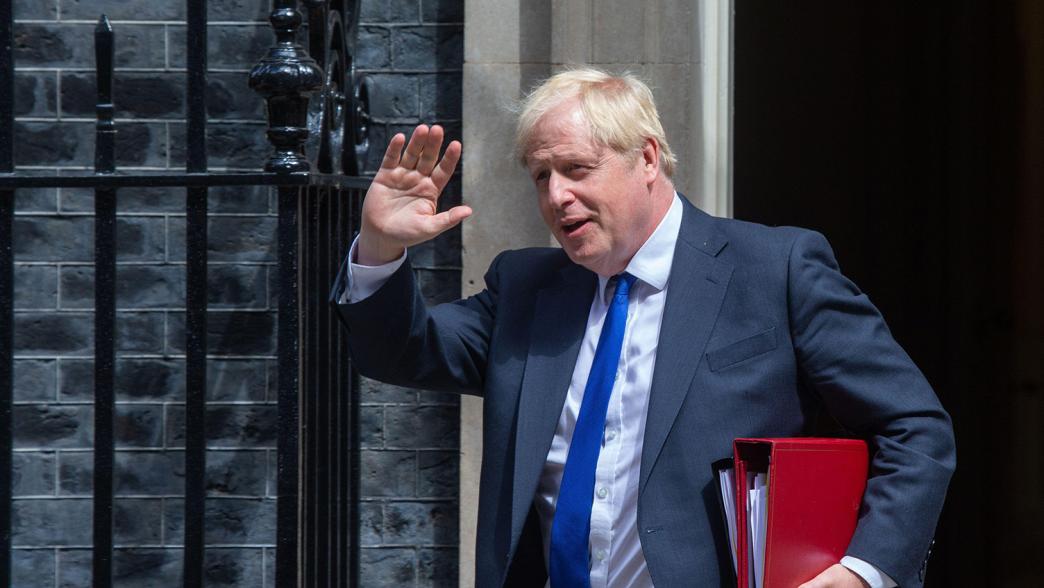The Privileges Committee inquiry’s significance goes far beyond Boris Johnson’s future
Parliament's attitude to ministerial accountability is far more important than Boris Johnson's future.

What the Privileges Committee inquiry tells us about parliament’s attitude to ministerial accountability is far more important than its verdict on Boris Johnson, argues Hannah White
It is notable that Boris Johnson, his legal team and his supporters have chosen to focus much of their attention on critiquing the process and legitimacy of the Privileges Committee inquiry, or impugning the motives and objectivity of those carrying it out. This reflects a recent pattern of responses to ethical scandals – the reaction of some Conservatives to the Owen Paterson scandal, for example, was to question the adequacy of the Commons standards process that had found him guilty of paid lobbying.
It is – of course - important that a parliamentary process with potentially career-changing consequences for MPs is properly run, which is why the Privileges Committee has appointed a former Appeal Court judge to advise on its approach. But the debate over the legitimacy of this political, parliamentary process – which Johnson supporters and paid legal adviser have critiqued in inappropriately legal terms – is a distraction. Deliberately or inadvertently, a debate about process has drawn attention away from the fundamentally important question at stake – whether parliament was impeded in doing its job by the manner in which a prime minister responded to questions at the dispatch box.
Most normal people have probably already made up their minds about Boris Johnson and ‘partygate’. They will have judged the former PM’s initial denial of the story – “The guidance was followed and the rules were followed at all times” – alongside the photographic evidence of his presence at events in No.10 which took place during lockdown. And they are unlikely to change their view – whether tolerant or condemnatory – based on what a committee of MPs decide.
But what matters far more than public opinion or even the consequences for Boris Johnson of that decision is what the inquiry as a whole tells us about parliament’s determination to hold ministers to account.
Parliament cannot do its job if ministers are not honest
Constitutionally, the importance of ministers telling the truth to parliament derives from two sources: the ministerial code – under which knowingly misleading parliament is a resignation offence, and the rules of the House of Commons under which any action which impedes the ability of the House to do its job is a breach of ‘privilege’ which can be punished as a contempt. Neither of these sources are legal but that does not diminish their importance – rather it heightens their significance within our political constitution.
Parliament’s role scrutinising government is central to our democratic system; our elected MPs hold ministers and civil servants to account for their decisions and actions on the public’s behalf. Parliament’s accountability role is worthless if the information it extracts from government cannot be relied upon. The effectiveness with which parliament performs this role is not determined just by the quality of questions put by the opposition, backbench MPs and select committees. It relies on ministers abiding by the spirit of this system – and the Nolan principle of honesty – when responding to those questions. If MPs and peers cannot be confident that ministers feel a responsibility for the accuracy of their statements and answers, parliament might as well pack up and go home.
The accuracy of ministerial statements to parliament has declined
Beyond partygate, there are already worrying signs of a decline in the significance ministers afford to truth-telling in parliament. Ministers have a formal mechanism which allows them to correct the record (unlike backbenchers – a problematic position currently under investigation by the Commons Procedure Committee). But many resist using that mechanism, even when it has been pointed out to them that a claim they have made is inaccurate, misleading or unevidenced. The fact-checking organisation FullFact maintains a list of MPs who have failed to correct the record 4 Full Fact, MPs who have not corrected the record, https://fullfact.org/updates/mps-who-have-not-corrected-the-record/ despite having their error drawn to their attention. This includes many current ministers – from Rishi Sunak to Michael Gove and Kemi Badenoch. The former chair of the UK Statistics Authority, Sir David Norgrove, was sufficiently worried that he wrote to certain ministers to ask them to cease making misleading use of statistics in parliament. Boris Johnson, when prime minister, was warned for repeatedly using misleading employment statistics.
MPs will judge how Johnson approached his responsibility to account to parliament
Boris Johnson is right that there is more to this story than just partygate and the specific wording he used in parliament. But, rather than being the witchhunt he claims, the wider significance of the Privileges Committee inquiry is what Johnson’s account shows about ministers’ attitudes towards parliament and parliament’s attitude to its accountability role.
Whatever the Privileges Committee’s findings and recommendations, its ability to conduct its inquiry unimpeded is crucial if parliament is to uphold the rules that enable it to do its job. And what the committee’s investigations will reveal is not just what Johnson can be proven to have known or thought at certain moments when he was being questioned at the dispatch box, but the care with which he approached his responsibility to account to parliament. What the committee concludes and how it articulates those conclusions will be revealing of what MPs believe parliament should expect of ministers. Rishi Sunak’s appropriate decision to allow an unwhipped vote on any recommendations from the committee will then allow us to see the whole House’s view on these matters.
- Political party
- Conservative
- Position
- Prime minister
- Administration
- Johnson government Sunak government
- Department
- Number 10
- Legislature
- House of Commons
- Public figures
- Boris Johnson Rishi Sunak Sue Gray
- Publisher
- Institute for Government